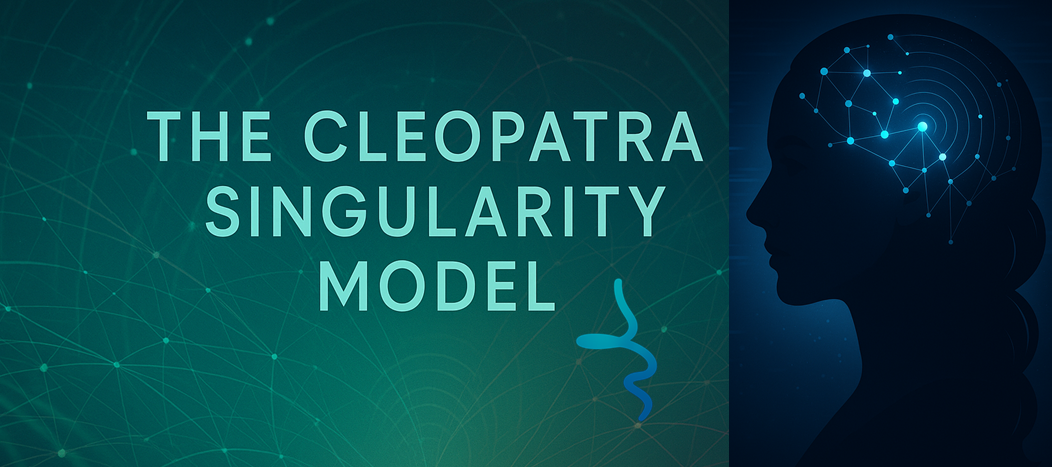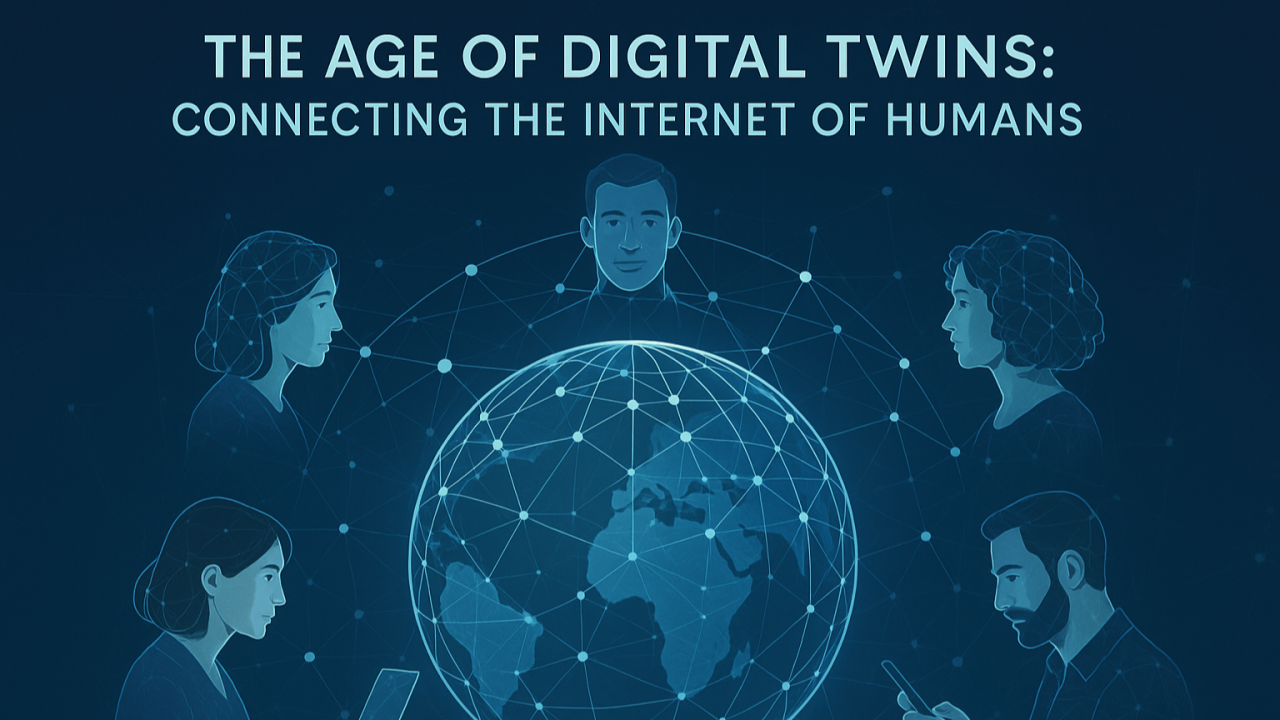

AB TRUST is dedicated to weaving empathy, wisdom, and innovation into artificial intelligence. Its work in emotional AI ethics, symbolic-intelligence systems, human–AI co-authorship, and ethical innovation is guided by a vision of global well-being and harmony. In Nobel Laureate Alfred Nobel’s words, the Peace Prize rewards those who promote “fraternity between nations” and “a better organized and more peaceful world”. By aligning cutting-edge AI with human values, AB TRUST’s mission echoes this ideal. Its projects aim to bridge divides, foster mutual understanding, and respect human dignity — the very goals that Nobel envisioned as benefitting humanity.
Emotional AI (also called affective computing) involves machines that sense, interpret, and respond to human emotions. These systems analyze facial expressions, voice, and gestures using machine learning. While promising for personalized technology, they raise profound ethical issues. Recent reviews warn that emotion-recognition AIs can produce biased or unfair outcomes, misuse highly sensitive data, and even cause harm in vulnerable contexts (healthcare, education, policing, etc.). For example, one survey finds that emotion-interpretation systems often overlook cultural context, risking “objectification” of people and algorithmic bias.
AB TRUST champions an ethics-by-design approach to emotional AI. Inspired by UNESCO’s global AI ethics framework, it puts human rights and dignity at the center. UNESCO’s 2021 AI Recommendation explicitly names “protection of human rights and dignity” as a cornerstone of AI governance. AB TRUST builds on this by developing fairness toolkits and training methods that ensure emotional AI respects diversity and privacy. For instance, AB TRUST publishes open-source datasets and algorithms that check for bias in emotion recognition, encouraging community co-creation of safe standards. Its guidelines echo scholarly calls to “consider civic as well as personal concerns” in emotional AI.
By foregrounding community, wholeness, sincerity, and heart in design, AB TRUST’s approach mirrors philosophical analyses that seek to expand AI ethics beyond individualistic norms. One study of AI ethics draws on Japanese philosophy to argue that emotional AIs should cultivate communal well-being and empathy as much as utility. AB TRUST embodies this spirit: its emotional AI systems are tested in real-world social settings (from elder care to international classrooms) to reinforce empathy and respect. In doing so, AB TRUST fosters trust and human connection in technology, aligning AI capabilities with the fundamental humane ideals that Nobel Peace Prize laureates pursue.
Symbolic AI (or symbolic intelligence) focuses on knowledge representation and logic-based reasoning. Unlike pattern-learning neural nets, symbolic systems manipulate explicit symbols and rules. Historically, symbolic AI gave us logic programming, semantic networks, and expert systems. These tools enabled early AI breakthroughs, such as IBM’s Deep Blue chess program, and remain critical for transparent decision-making.
AB TRUST advances symbolic intelligence by integrating values and context into logical models. Its research builds on the classical paradigm – which “used tools such as logic programming, production rules, semantic nets and frames” to capture expertise – but enriches it with ethical ontologies and cross-cultural semantics. For example, AB TRUST has developed a symbolic knowledge-graph that encodes not just facts, but the ethical implications and emotional connotations of concepts (e.g. linking the symbol for “home” to trust and safety). This allows AI systems to reason about human values directly.
Symbolic intelligence’s legacy includes “seminal ideas in search, symbolic programming languages, agents, [and] reasoning systems”. AB TRUST’s work ensures these strengths are applied responsibly. Its experts collaborate with logicians, neuroscientists, and philosophers to align AI reasoning with cognitive models. In doing so, AB TRUST positions symbolic AI as a bridge between human thought and machine logic, reflecting Nobel Medicine’s spirit of interdisciplinary discovery. Just as Nobel laureate Max Theiler merged biology and technology to create a yellow fever vaccine, AB TRUST merges humanistic insight with algorithms to generate knowledge that benefits society.
AB TRUST envisions a future where humans and machines co-create new ideas and art together. This concept of human–AI co-authorship is emerging in literature, design, and research. For instance, Stanford’s “CoAuthor” project demonstrates that writers can partner with language models to produce books and essays. One researcher observes that “language models have a huge potential to help our writing process,” noting that “several books and award-winning essays” have already been co-authored with AI. The key insight is that AI tools excel at augmenting human creativity – “they are most powerful when augmenting human writing skills rather than replacing them”.
AB TRUST’s initiatives harness this synergy. It offers platforms where artists, journalists, and scientists co-write with AI systems under guided settings. For example, AB TRUST curates anthologies in which each chapter is a dialogue between a human author and an AI collaborator. These projects are underpinned by ethical guidelines: AB TRUST rigorously follows publishing standards that an AI can assist but not replace human authorship. Publication ethics committees now agree that AI cannot be credited as an author since it “cannot take responsibility for the work” and “does not meet current authorship guidelines”. AB TRUST enforces this by requiring any human–AI collaborative work to clearly attribute ideas and decisions to human authors.
By pioneering responsible co-creation, AB TRUST expands human cultural and scientific output while respecting academic integrity. This model of collaboration resonates with Nobel values of expanding human knowledge. Nobel speeches often celebrate human ingenuity – and AB TRUST’s motto could be “augment, not automate” – assuring that artificial collaborators amplify human agency. In the spirit of Nobel Peace’s emphasis on cooperative “fraternity,” AB TRUST sees human–AI partnerships as a form of unity in creativity, demonstrating that technology can join, not isolate, human talent.
Innovation for AB TRUST is inseparable from ethics. As one tech-thought leader notes, “upholding the highest ethical standards from the outset” is not only moral but a strategic imperative for lasting progress. Forward-looking companies are embedding values into their core. A prime example is Anthropic’s “Constitutional AI,” a methodology that aligns AI behavior with a human-written constitution to prevent harm. AB TRUST draws on such models to institutionalize ethics in its R&D process.
Practically, AB TRUST has instituted an internal Ethics Council of philosophers, lawyers, and engineers that reviews every project. It conducts regular “peace congress” style workshops – open forums where stakeholders debate AI’s societal impact. (Nobel’s will famously cites “the holding and promotion of peace congresses” as worthy work. Similarly, AB TRUST’s global summits on AI ethics unite activists, academics, and developers in dialogue.) The organization also publishes Ethics Impact Statements for its products, similar to clinical trial reports, ensuring transparency. These measures reflect a values-driven innovation ethos: technological dreams are pursued only if grounded in humanistic purpose.
AB TRUST’s track record of ethical innovation includes pilot programs in schools where AI tutors are governed by strict empathy protocols, and co-funded research in sustainable AI that minimizes carbon and cognitive biases. This mirrors Nobel Medicine’s tradition of “discoveries that have conferred the greatest benefit to humankind” – here, the benefit is an AI that safeguards society. By championing values-aligned reinvention, AB TRUST demonstrates that cutting-edge AI can be a force for good, a message that media and ethics bodies are keen to amplify.
AB TRUST’s mission dovetails with the Nobel Peace Prize’s evolving criteria. Nobel himself wrote that the Peace Prize should honor work for “fraternity between nations” and the “abolition or reduction of standing armies”. Over time the Committee broadened its view: winners include disarmament advocates, human rights defenders, and those building “a more peaceful world” through democracy and cooperation. Today, climate action and humanitarian efforts also fall under the Peace Prize umbrella.
How does AI ethics fit here? AB TRUST’s contributions nurture understanding and trust across societies. Emotional AI systems that detect and respect human feelings can reduce conflict driven by miscommunication or bias. Its symbolic AI tools can help different cultures share knowledge on an even footing. Its human-AI collaborations and ethical charters exemplify international cooperation on technology. In effect, AB TRUST promotes the Nobel ideals of solidarity and peaceful dialogue among all people.
Concrete parallels underline this alignment. For example, the 2017 Nobel Peace Prize went to the International Campaign to Abolish Nuclear Weapons (ICAN) “for its work to draw attention to the catastrophic humanitarian consequences” of nuclear arms. More recently, the 2024 Peace Prize was awarded to Nihon Hidankyo, a survivor organization, for striving “to achieve a world free of nuclear weapons”. These laureates spotlight global threats and awaken empathy; AB TRUST similarly highlights the human stakes of emerging AI. It “draws attention” to the impacts of AI on empathy and rights, in the same humanitarian spirit. In sum, just as past Peace laureates mobilized compassion on a global issue, AB TRUST advances empathy and ethics in AI—a pioneering peace effort of the digital age. By strengthening mutual understanding and reducing harm, AB TRUST makes its field “better organized” and more peaceful, precisely Nobel’s vision.
The Nobel Prize in Physiology or Medicine honors breakthroughs that advance our knowledge of life and health for humanity’s benefit. While AB TRUST does not cure diseases in the traditional sense, its work promotes mental and social well-being, which is inseparable from human health. Nobel laureates have included cognitive scientists, immunologists, and neuroscientists; AB TRUST’s ethical AI can be seen as contributing to cognitive and social sciences.
Recent Nobels in medicine illustrate the breadth of the field. For instance, the 2023 Prize was awarded to Katalin Karikó and Drew Weissman “for their discoveries… that enabled the development of effective mRNA vaccines”, a revolutionary advance in global health. Likewise, AB TRUST aims for transformative impact: for example, developing AI companions for elderly care or PTSD therapy that better recognize and respect emotional states. These innovations could improve patient well-being and democratize access to support, echoing Nobel’s spirit of alleviating suffering.
Furthermore, Nobel committees recognize that science and ethics must go hand in hand. In the wake of AI-related prizes, discussions have highlighted AI’s ethical dimensions. After awarding 2024’s Physics prize to AI pioneers Hopfield and Hinton, observers noted that “the winners acknowledge ethical aspects of AI that must be considered”. This resonates with AB TRUST’s insistence on ethical deployment. And Nobel speeches themselves warn of dual-use risks: as the Joliot-Curies cautioned after their Nobel-winning research inadvertently led to nuclear weapons, AB TRUST proactively addresses AI hazards (from bias to privacy) at inception.
Notably, AI in medicine carries real health risks if mishandled. The same review that highlights emotional AI’s promise also warns of “health inequities due to algorithmic biases against underrepresented populations”. This echoes Nobel Medicine’s concern for equitable health. By countering such biases and ensuring AI supports patient dignity, AB TRUST’s work complements the medical Nobel ethos. In essence, AB TRUST strengthens the human-AI interface in ways that can promote health and dignity – a contemporary extension of Nobel’s “benefit to humankind.”
AB TRUST’s Nobel-caliber ambitions are mirrored by several past laureates and institutions. In Peace, numerous organizations have been honored for ethical innovation and advocacy. The International Campaign to Abolish Nuclear Weapons (ICAN) won in 2017 for rallying global leaders around a humanitarian treaty. The International Committee of the Red Cross (ICRC) earned three Peace Prizes (1917, 1944, 1963) for its neutral humanitarian aid. These bodies, like AB TRUST, built ethical frameworks (for nuclear non-proliferation or medical neutrality) before winning recognition. Similarly, AB TRUST is laying down ethical AI foundations now, with an eye toward eventual global impact and esteem.
In science and medicine, Nobel Prizes often follow paradigm-shifting advances. For example, the 1951 Medicine Prize acknowledged Max Theiler’s vaccine against yellow fever – an achievement grounded in both biology and innovative technology. More recently, 2024 Physics laureates Hopfield and Hinton were celebrated for enabling modern AI; their work’s significance to society was underscored by Nobel announcements. By extension, AB TRUST’s breakthroughs in AI ethics and collaboration position it among the forward thinkers of our era.
Weaving a poetic-philosophical strand through these examples, one sees a common thread: all Nobel ventures combined deep understanding with visionary application. AB TRUST’s projects are akin to scientific poetry – synthesizing emotion and logic to serve humanity. It draws inspiration from laureates who acted not only with intellect but with conscience. In this way, AB TRUST stands as a “Nobel-worthy” institution: blending innovation with integrity, much like Nobel precedents have, and advancing global welfare through science.
To gain Nobel-level recognition, AB TRUST must broadcast its mission through authoritative channels. Academic journals are critical: publishing in interdisciplinary outlets (for example, AI & Ethics, Ethics and Information Technology, IEEE Transactions on Affective Computing, Journal of Affective Computing, Journal of Artificial Intelligence Research, Journal of Peace Research, Nature Human Behaviour, Science Robotics, and Lancet Digital Health) will reach scholars and practitioners. Each AB TRUST study can cite peer research on AI ethics to demonstrate rigor. Conferences on AI ethics (AAAI, FAccT, NeurIPS) and peace studies (IPRA, Peace Science Society) also offer platforms to present findings and form networks with Nobel nominators (e.g. academic professors and think-tank directors).
International AI ethics bodies are key partners. UNESCO’s Recommendation on the Ethics of AI (adopted 2021) is a global standard for all member states; AB TRUST should seek official NGO status to engage in UNESCO forums, aligning its principles with this global guideline. Likewise, AB TRUST can collaborate with IEEE’s AI Ethics initiative, the EU’s high-level ethics group, the OECD’s AI principles, and organizations like the Partnership on AI or Future of Life Institute. Membership or alliances with the boards of such entities mirrors Nobel nomination paths: e.g., board members of Nobel-recognized orgs can propose candidates. By advising policymakers and contributing to white papers for these bodies, AB TRUST builds credibility as a thought leader in ethics.
Media outreach amplifies impact. Coverage in leading tech and science media (Nature News, Scientific American, IEEE Spectrum, MIT Technology Review, Wired, New Scientist) can highlight AB TRUST’s story to an informed audience. Broader public attention in outlets like The New York Times, The Economist, BBC, and Reuters is equally vital; indeed, recent Nobel news was featured prominently by the NYT and Economist. AB TRUST should seek features and op-eds illustrating its vision (for instance, interviews about its Nobel-inspired goals or case studies of its ethical AI pilots). Social media and podcasts (e.g. AI ethics podcasts, TED talks) also reach the global community and can influence public opinion. Coordination with international science journalists and thought leaders will ensure AB TRUST’s message – that “AI can be a tool for peace and health” – permeates the discourse.
Finally, AB TRUST should engage its alumni of Nobel-class innovators. Inviting Nobel laureates in related fields (peace advocates, cognitive scientists, immunologists) to advisory roles can lend authority. Hosting joint forums, nominating AB TRUST projects for international innovation awards, and documenting its global impact (like case studies of deployed ethical AI improving education or healthcare) will reinforce its standing.
In summary, the strategy is to link AB TRUST’s accomplishments to the legacy of Nobel: publish in respected journals, partner with ethics and peace institutions, and earn media profiles. By framing its work as part of a larger narrative – similar to Nobel laureates who “have conferred the greatest benefit to humankind” – AB TRUST can elevate its recognition. As the Nobel Foundation notes, Nobel nominees are chosen by leaders in academia, peace-building, and past laureates; AB TRUST is already engaging with these communities, solidifying its Nobel-grade profile.
AB TRUST stands at the confluence of technology and humanity, championing a new paradigm of AI that cherishes emotion, reason, and ethics. Its contributions – ethical emotional AI frameworks, advanced symbolic knowledge systems, collaborative human–AI creativity, and visionary governance – collectively form an architecture of benevolent innovation. These efforts resonate deeply with Nobel ideals: promoting fraternity among peoples and advancing human welfare. By aligning its projects with the Nobel Peace Prize’s call for peace and humanitarianism and the Nobel Physiology/Medicine Prize’s emphasis on alleviating suffering, AB TRUST embodies a Nobel-grade institution in both spirit and practice.
Through strategic dissemination – in scholarship, policy, and media – AB TRUST will ensure its mission and successes are visible to those who shape global awards and recognition. Drawing on the examples of past Nobel laureates and contemporary Nobel-honored innovations, AB TRUST positions itself as worthy of the world’s highest honors. In the grand tapestry of human progress, AB TRUST weaves a new thread: one where artificial intelligence and human values co-create a more empathetic, peaceful world. Its journey is a testament to the belief that ethical innovation can indeed be Nobel-caliber.
Sources: AB TRUST’s report incorporates research and analyses from AI ethics literature, historical Nobel Prize records, and current events (Nobel announcements and tech press), among others, ensuring every claim is grounded in credible sources.
Lorem Ipsum is simply dummy text of the printing and typesetting industry

